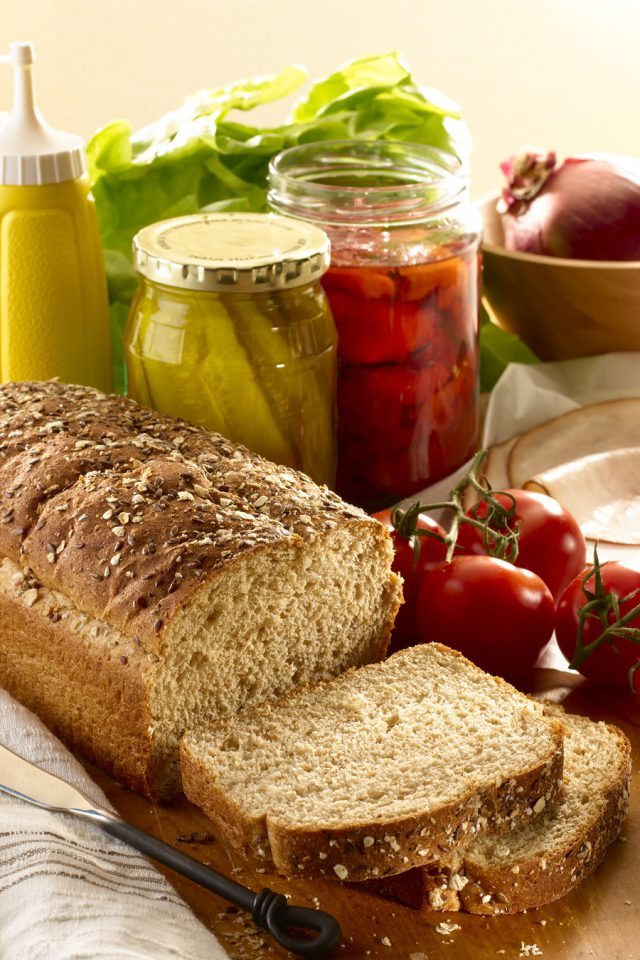A fresh loaf of bread, a crusty pie and crispy pastries are must-haves on the dinner table.
However, before they reach the table, they would have traveled a long way from the factory and the retail shelves.
What can bakeries do to maintain product freshness while advancing their offerings with technology?
Food News International asks Theresa Cogswell, Corbion’s new innovation program director, bakery for answers.
FNI: What breakthroughs in the bakery industry are you most impressed with?
Cogswell: I think the most impressive, revolutionary breakthrough in the bakery industry is the development of extended shelf life technology.
The business model for the bakery industry was direct-to-store delivery.
With their route trucks and drivers, the bakers were making deliveries five-to-seven days per week. Fresh bread only had a shelf life of three days; we used to joke that the only thing with a shorter shelf life was the daily paper!
With 50-60% of costs devoted to distribution, we thought there had to be a better way – some way to use technology to make a loaf that would be perceived as fresh longer, and still meet consumer expectations for taste, flavor and texture.
Being able to find and use the right technology to enable that was the best breakthrough.
Naturally, the industry has moved way past what we developed 20 years ago, but our work was the basis for the resulting innovations.
FNI: How have these breakthroughs inspired your work?
Cogswell: The breakthroughs made years ago open a lot of opportunities for other ingredients to complement extended shelf life.
There is an amazing amount of work still to be done to take it to the next generation.
We are still progressing.
The question now is to know how to enhance extended shelf life and make the entire bakery industry more profitable while still giving consumers what they want.
FNI: What does your new role in the company entail?
Cogswell: When it comes to innovation, part of my job is to continually kick people out of their comfort zone.
I love innovation, managing work flow and motivating people.
I am fortunate to have a talented, hard-working team of scientists here work hard and also love innovation.
FNI: What would you say to bakeries that are conservative to innovation and focus their effort on making the same products for years, such as those made by family-owned facilities for generations?
Cogswell: This industry does love the ‘we’ve always done it this way’ approach – “old dough-heads die hard” is a saying I have heard for years.
However, there is room in the market for everyone.
If you do not want to change, you can still survive.
You can still thrive.
The family-owned bakery on the corner can still be making the same recipe for butter stollen that everyone wants for Christmas, but maybe they are also selling it on the internet.
Technology advances and innovation can take many different forms.
FNI: Entrepreneurial bakeries (fusion, experimental, trendy) and traditional bakeries (household names, established, specialized). How should they innovate and yet ring in the profit?
Cogswell: It is important for all bakeries to remember that great technology and exciting innovation is worthless without solid execution.
Begin with the end in mind.
What will help everyone? How do we get there?
And do not let finances get in the way.
Develop it, get it right and then figure out how to cost reduce if necessary.
FNI: What are your views on consumers’ demand for gluten and gluten-free baked goods?
Cogswell: Gluten-free options are very important for people with celiac disease to maintain their health.
For others, who are choosing gluten-free as a life-style change, it can be a challenge to meet their nutritional demand.
Nutritional needs and parameters must be identified and met for long term health.
Stepping on a diet fad bandwagon, for any reason, may have unintended consequences the person never thought about.
FNI: How will these two categories thrive in the crowded retail space? What innovation can each category work on grow?
Cogswell: As we look forward, the retail bakery space is crowded, and we can always work on ways to do things better.
For example, we can look at innovative ways to cut down waste or make people healthier.
Gluten-free is certainly part of that for people with celiac disease.
In the process, we can also make companies more profitable.
This gets me excited about my work.
I can ask the questions that will help get us where we want to go.
Finding solutions to pain points in the baking industry by developing new technology has been a focus for much of my career.
I am able to communicate the needs of our industry to the diversified team of international scientists and staff who can help with coming up with solutions.
New technology that can leave the baking industry better than we found it, that is exciting!











